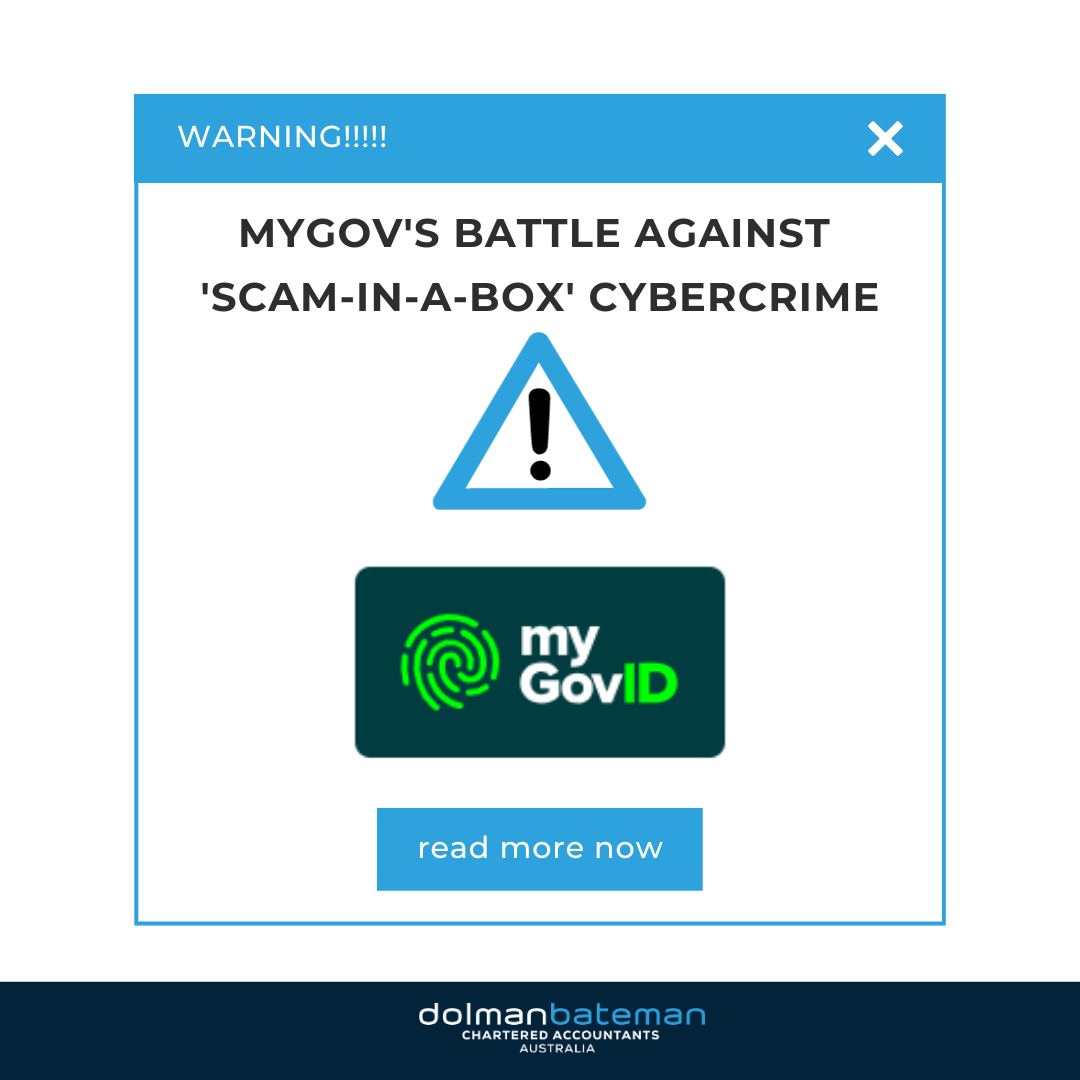MyGov's Battle Against 'Scam-in-a-Box' Cybercrime
- Arnold Shields

- May 15, 2024
- 3 min read
Updated: May 13, 2025

Australia’s MyGov Is Under Cyber Attack | Here’s How to Stay Safe
Cybercrime in Australia has reached an alarming new level. Criminals are now selling “scam-in-a-box” kits on the dark web, arming fraudsters with the tools to launch professional-grade attacks on our most sensitive government systems, including MyGov.
These kits aren’t your average scams. They allow cybercriminals to quickly create fake websites that mimic services like Centrelink, the ATO, and Medicare. With built-in shutdown features and the ability to run multiple scams simultaneously, they’ve turned cybercrime into an automated, efficient industry.
And the cost to Australians is massive.
The Financial Toll and the Government’s Response
According to Government Services Minister Bill Shorten, Australians have already lost $3.1 billion to scams this year. The MyGov platform has been forced to suspend thousands of accounts each month due to suspected breaches.
One of the key reasons these scams succeed is password reuse. Using the same password across multiple platforms makes it easy for hackers to take over several accounts in one hit.
To address this crisis, the Australian Government is upgrading the MyGov identity system, with full implementation of a new digital ID already underway in partnership with Senator Katy Gallagher. This is a significant step toward making our online services safer, but there’s more that individuals can do to protect themselves.
Protect Yourself: 10 Practical Cybersecurity Tips
1. Enable Two-Factor Authentication (2FA)
Add a second layer of protection by setting up 2FA on your MyGov account. This small step can make a big difference.
2. Verify Official Communications
Never trust unsolicited messages claiming to be from MyGov. Contact the agency directly if you're unsure.
3. Check Website URLs Carefully
Look closely at the website address before entering any personal details. Official government sites will always end in .gov.au.
4. Use Strong, Unique Passwords
Avoid reusing passwords. Consider using a password manager to generate and store secure passwords.
5. Monitor Your MyGov Activity
Regularly check your MyGov account for unfamiliar activity or changes.
6. Stay Informed on the Latest Scams
7. Recognise Red Flags in Messages
Watch out for emails or texts that create urgency or ask for sensitive information. These are common scam tactics.
8. Update Your Devices and Software
Install updates for your phone, apps, antivirus software, and computer. These often contain important security patches.
9. Avoid Public Wi-Fi for Sensitive Tasks
Access your MyGov account only from secure and private networks.
10. Report Anything Suspicious
Seen something dodgy? Report it to the Australian Cyber Security Centre (ACSC).
Feeling Overwhelmed? We’re Here to Help
Cybersecurity can feel like a minefield, especially with threats becoming more complex by the day. But you don’t have to face it alone.
If you're worried about your online safety or simply want expert advice, contact Dolman Bateman at 02 9411 5422. Our experienced team is ready to guide you through this digital battleground and help you protect your data and identity.
Let’s stay one step ahead, together.
Disclaimer:
The information provided in this article is general in nature and does not constitute personal financial, legal or tax advice. While every effort has been made to ensure the accuracy of this content at the time of publication, tax laws and regulations may change, and individual circumstances vary. Dolman Bateman accepts no responsibility or liability for any loss or damage incurred as a result of acting on or relying upon any of the information contained herein. You should seek professional advice tailored to your specific situation before making any financial or tax decision.



